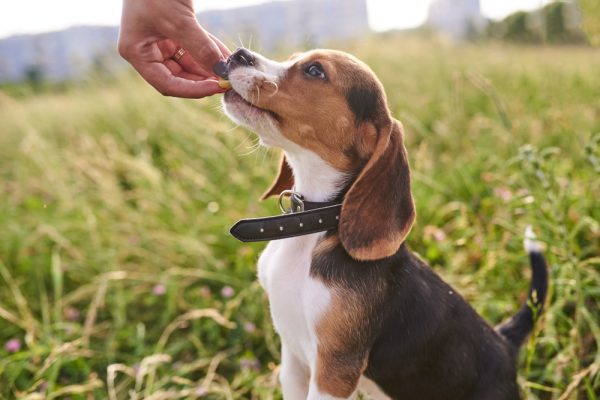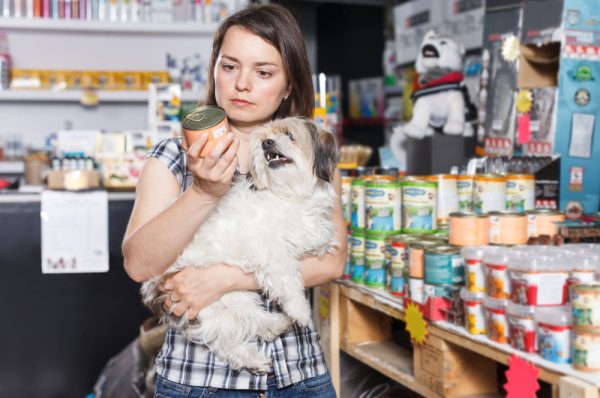In this article
View 3 More +There are so many different dog breeds out there. All across the world, breeders work diligently to produce sound-minded, healthy, well-tempered pups with incredible physical appearances. If a person is a reputable breeder, they will ensure that puppies are taken care of to the greatest extent. They will make sure that parents receive the appropriate vetting, genetic testing, and vet care during pregnancy and after birth.
Sadly, however, not everyone is so kind and caring. Some people use dogs just as a means of financial gain. They don’t care about the well-being of the animal and are just looking to turn a quick buck.
But what is the difference between a puppy mill and a responsible breeder? How can you tell them apart and stop puppy mills without hurting responsible breeders? Let’s find out!

How Can We Stop Puppy Mills? 10 Ways
So, you might be wondering how to shut down puppy mills. After all, it is an epidemic that does not get discussed nearly enough. Here are some tips on how to steer clear of puppy mills and shut them down without hurting responsible breeders.
1. Consider Adoption
Many professionals will recommend that you adopt instead of buy. We’re all for it. There are tons of homeless dogs across shelters in the world, just hoping for a loving family to go home to. We highly support the concept of adoption, permitting you’re in a situation where you can.
A few things to keep in mind here is that many of these dogs have a checkered and colorful past. They might need a little more extra love and attention than a fresh little puppy who’s not yet seen much of the world.
This is not to say that we discourage buying from reputable breeders, it just means that if you are in the market, always consider adoption as an option before making the decision to get a puppy.
It’s helpful to remember that adopting an older puppy or adult dog has its perks! Most of them already come neutered and vaccinated, with a known list of health conditions, and have been appropriately tested for their likes and dislikes. Plus, you spend a fraction of what you would spend at a breeder with an equal amount or more of vet care already having been accomplished.
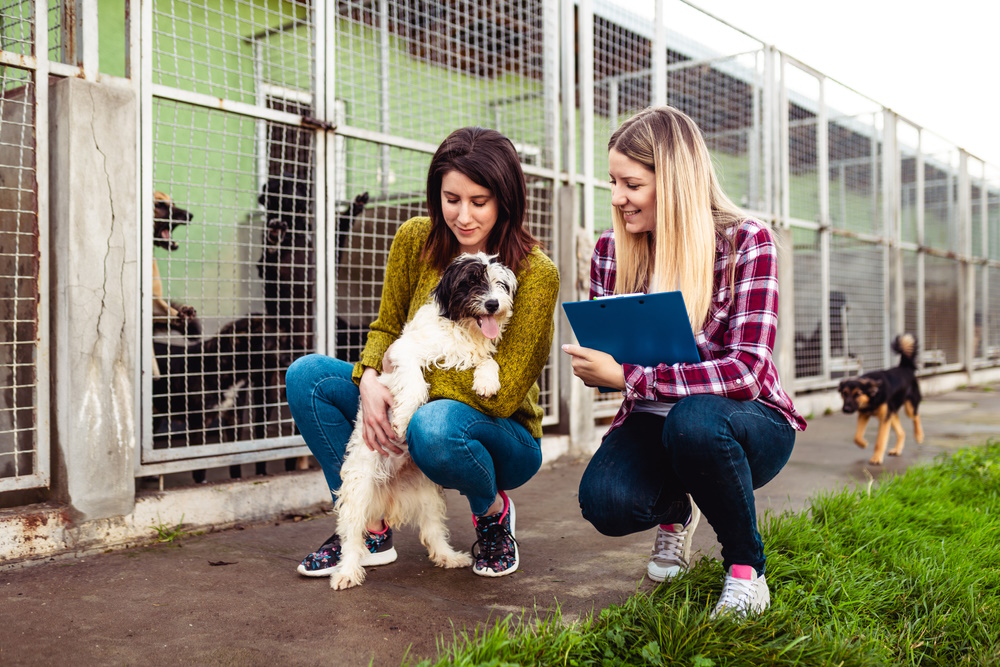
2. Raise Awareness
The more you know, the more you can help. You can start by raising awareness with pet lovers everywhere. You can start with social media platforms as a way to quickly spread the word. Many people are supporting puppy mills unknowingly all the time.
It might be years or more before they find out about puppy mills, and some never do. It’s hard for us to band together to end modern-day dog slavery when many citizens are still not properly informed on the matter. You can take it upon yourself to be a beacon of light and voice of reason.
Feel free to explain the differences between puppy mills and responsible breeders to potential buyers, relatives, acquaintances, and associates!
3. Legislative Support
You can get involved with your local laws. Be sure to get educated first on the laws in your state and look for ways to improve them. You can start by spreading awareness at a local level and expanding later. Reach out to your representatives about the dangers of puppy mills and call for more legislation to be placed on responsible dog breeding.

4. Support Local Breeders
If you know some really fantastic local breeders, don’t stop being a voice for them. Local breeders have gotten such a bad rap, getting a lot of unnecessary hate for what they do due to misinformation.
We don’t need to be mad at responsible breeders, we need to be mad at people who farm and mistreat dogs. So make sure to stick up for appropriate breeders when necessary, remembering that it isn’t the people that are trying to authenticate a breed that are the problem.
These people genuinely love a particular breed and want nothing more than to spread awareness about it and encourage responsible dog ownership.
5. Volunteer
So many dogs who are rescued from puppy mills wind up in rescues and shelters. Volunteering at rescues and shelters might not stop puppy mills, but it can support dogs who have been affected by them.
Rescues are always looking for willing volunteers who will walk, play with, and look after the dogs in the shelter. If you’re so inclined, you could also offer to foster, allowing these dogs to live in a home setting until they find their forever home.
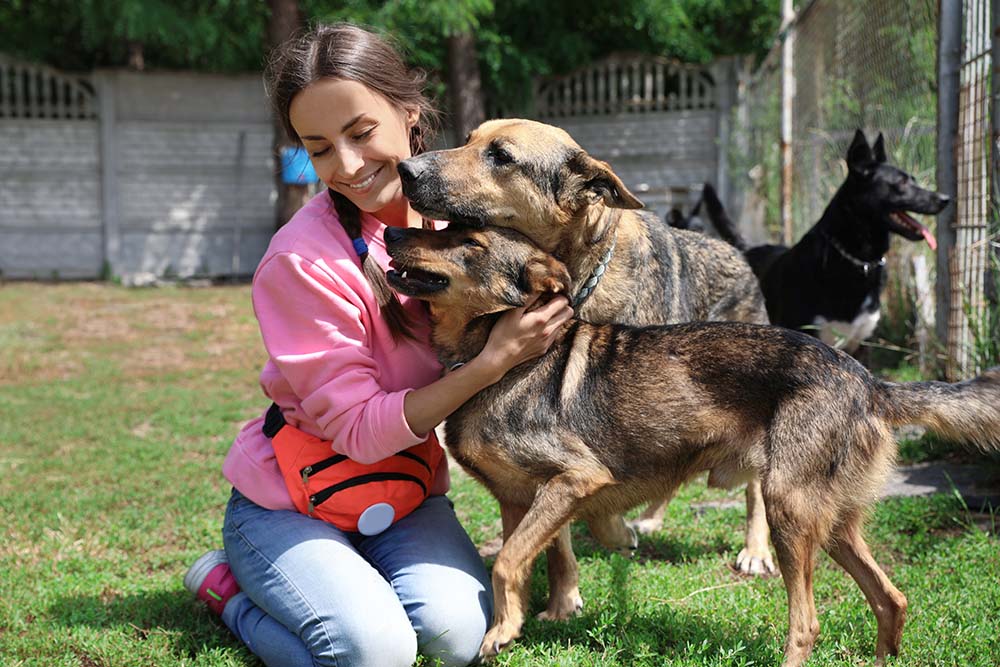
6. Check Sources
Be sure to thoroughly check sources before you decide on a puppy. Sometimes, things can look pretty normal at first glance until you look under the surface.
We highly implore any person wanting to adopt a dog to do their research on the breeder before purchasing. Things are not always what they seem, and many people have unwittingly supported a puppy mill in the past.
7. Visit the Puppy and Be Selective
No matter how cute the puppy is, don’t jump on the first one you see without doing some proper research first. You might be scrolling on Facebook or Craigslist and come across the most adorable little dog with a bow in its hair.
That doesn’t mean that the person selling this dog has the best intentions in mind. Nor does it mean that the photo of the puppy is the actual puppy you’d be getting. Make sure to ask lots of questions and ensure that you visit the puppy in its home environment. Many puppy mills will try to meet prospective buyers away from the house, so make sure you insist on meeting the puppies with their mum, at the place they live. If there is any push back on this request, abort the operation entirely as it’s highly likely you are dealing with a puppy mill.

8. Report Suspicious Cases
If you know there’s something fishy going on, don’t wait! These dogs need you now. It can take months and even years for investigative teams to do anything about a puppy mill situation, so the earlier detection, the better.
Reach out to your local law enforcement or animal control specialist and let them know that you suspect a puppy mill situation so that they can gather information and begin the investigation.
9. Investigate Businesses Yourself
If you really want to dig deep, you can always do some private investigating on local puppy mills. You can try to find as much information as possible about the facilities and what they offer. Exposing them for what they are can help other buyers understand the dangers and stay away from these companies.
While you are just one person, you can rally together with other like-minded people who would be able to help you with your mission. There are many pet lovers out there who would be more than willing to join a just cause. You can even reach out to local newspapers and news stations to help get the word out.
Just make sure that you have all of your facts before you do so and avoid calling out any specific people or businesses. Leave that to law enforcement, and instead, just raise general awareness about puppy mills and the signs of them so that people know what to look for.

10. Use Your Intuition
Sometimes, your gut can tell you things that your brain never does. If you just have an off feeling about a breeder for no particular reason, we recommend steering clear.
It’s always better to be safe than sorry, and you’re not going to feel very good about yourself later if you realize that you have supported a facility that abuses animals regularly.

Puppy Mills vs. Authentic Breeding: How to Tell the Difference
Before we get into any other details, we’re going to explore how you can sometimes pinpoint the difference between a reputable or inauthentic breeder. Let’s start with a brief overview of breeders and puppy mills.
By definition, puppy mills are facilities that breed animals commercially. They might be small or large outfits, but their sole purpose is to turn out puppies as quickly as possible.
Reputable breeders, on the other hand, have extensive knowledge of a particular breed. They will ensure that each puppy gets appropriate veterinary checks and vaccinations, put contracts in place to protect the animal, and take full responsibility in the event of a failed pairing.
1. How Many Puppies Are Available
Puppy mills and authentic breeders don’t operate the same way. A reputable, licensed breeder might breed more than one type of dog, but this is not very common. Most breeders concentrate on one breed, but there might be more than one breeding dog at a reputable breeder’s establishment. Breeding facilities such as puppy mills generally have a large number of puppies available at a time, from multiple different breeds.
2. Breed Education
Breeders should be highly educated about the breed that they have. If they want to produce the most outstanding offspring, they have to learn as much as they can about the breed itself.
When talking to the breeder, they should demonstrate outstanding knowledge of their subject and want to share their knowledge and passion with you. If it seems like the breeder is not able to answer your questions or doesn’t know a lot about the types of dog they are breeding, this is a red flag.
If you’re the type of family that has a very sedentary lifestyle and lives in a very small area but wants a high energy breed, a responsible breeder would likely try to talk you out of it. Responsible breeders want their puppies to go to suitable homes, so they should be vetting potential owners just as much as you might be vetting them.
On the other hand, someone at a puppy mill will sell a puppy to anyone without any restriction or pointers to the new family on whether they can handle it.

3. Communication
A responsible breeder should be willing to communicate with you at all times. They should answer any and all questions that you have without hesitation and within a reasonable time frame.
If the “breeder” you are communicating with is avoiding answering hard questions and is difficult to get hold of, this is a red flag. Puppy mill owners generally don’t know a lot about the individual puppies they are trying to sell, or the puppy’s parents. They might navigate around questions or answer indirectly or unclearly.
4. Pushiness
A reputable breeder will not be very pushy about giving you a puppy. Anyone would want a potential owner to be very sure that the dog was a proper fit. However, people who run puppy mills are probably not interested in your reservations, they just want you to take the dog.
You taking the pup means more money in their pocket and that’s all they can see. Therefore, they might try to use tactics that get you to buy a puppy quickly, such as making it seem like someone else already wants to reserve the puppy or that they have dropped in price to push the sale.
5. No Interest in Your Home Life
Many responsible breeders will request to see pictures of your house and garden, encourage meet and greets, and ensure that you have the necessary space and resources to care for the dog in question. Someone who is running a puppy mill will just hand dogs out with no kind of reservation and no questions asked.

6. Deposits & Contracts
It is very standard practice for responsible breeders to take deposits for puppies and to have puppy contracts put in place. Deposits allow a potential owner to hold the dog of their choice until they are available.
Puppy contracts usually state that in the event you are unable to care for the dog any longer, the dog gets returned to the breeder. They may also have a spay/neuter clause saying that you will spay or neuter the dog within a certain amount of time after bringing them home.
Someone running a puppy mill will likely not be concerned with any of these things. They just want to get the dogs out the door. They might let you deposit, if you request to, but most of the time, they just want you to buy the dog and go.
7. Living Conditions
If you buy from a puppy mill, chances are you haven’t seen the parents nor have you seen where they have been kept. That is often because they have been kept in a setting where they haven’t received appropriate socialization or affection. Instead of showing you the pups at their home, puppy mill staff will usually meet you somewhere else to show you the puppy. This means you won’t be able to meet the pup’s parents or see where they’ve been living.
Many puppies are often left to fester in their own waste, waiting very long periods between kennel changes. They also can develop early behavioral issues due to confinement.
A reputable breeder will be sure to clean the area as often as necessary. They tend to take very good care of the puppies, ensuring they’re clean, well-fed, and happy. They will let you visit in person to see where the dogs are raised and how they are cared for. The mother should be available to be seen when you visit the pups, and sometimes the father is there too.
8. Socialization
Any reputable breeder will tell you how important early socialization is to puppies. They have to interact with their siblings, mother, and other people!
If a little puppy is kept in a kennel for the first eight weeks of its life, it’s not going to be a very well socialized pup. Ultimately, this can lead to unwanted behavioral problems. Poor socialization during the first 12-15 weeks of a puppies life is crucial. Lack of socialization can lead to suspiciousness and uncertainty of new animals, people and noises, but it can also contribute to other factors like separation anxiety and aggression.
You can almost guarantee that if you get a puppy from a puppy mill, they absolutely won’t have had the appropriate amount of socialization.

9. Cost of the Puppies
Most breeders only have a select few dogs that they breed. They keep their business quite small and take it very seriously. A reputable breeder will spend a substantial amount of money caring for each litter, which also adds to the ultimate cost of the puppies.
Puppy mills can charge much less money per pup because they haven’t invested money in their litters. Because of this, puppy mill puppies are usually unvaccinated which can have serious consequences in the future, such as the development of infectious diseases. A well-bred animal is likely to have come from parents that have been screened for genetic health conditions, so will be much less likely to suffer from these. Puppy mills breed animals that are not suitable for breeding, e.g. dogs with hip dysplasia, so as well as infectious diseases, puppy mill pups are more likely to suffer from genetic conditions.
Remember that if something seems too good to be true, it probably isn’t true.

Puppy Mill Facts
When you really get to digging about puppy mill facts, the statistics and numbers are devastating.
- Just in the United states alone, there are an estimated 10,000 puppy mills. While they should completely be registered, only 3,000 of them are licensed and registered with the USDA.
- Did you get your dog from a puppy mill? It’s possible. An estimated 2.6 million dogs were sold in 2021 from puppy mills, many to unknowing buyers.
- Of all the U.S. states, Missouri has the most puppy mills of all. They tend to concentrate the most in the Midwest. However, puppy mills will ship out their dogs without question, dispersing them throughout the United States.
- 99% of all puppies offered at pet stores are from puppy mills. However, gladly, 93% of pet stores in the U.S. no longer sell puppies at all. The pet stores that do still sell puppies will try to navigate around the source of the pups by telling you that they have the source for where they get their puppies and pamphlets on the matter. However, facts are facts, and many of these dogs actually come from puppy mills.
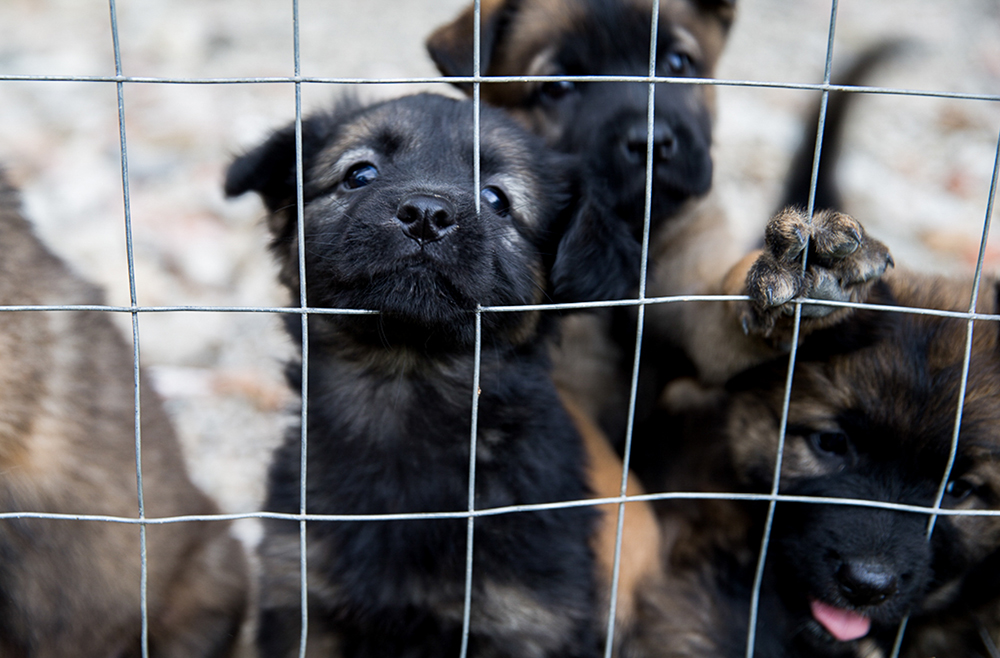
What About Backyard Breeding?
We’ve nearly exhausted ourselves giving you all of the examples between reputable breeders and puppy mills. But what about backyard breeding? What is the difference?
Backyard breeding is the irresponsible breeding of animals in poor conditions with insufficient care. It is usually carried out by people with little experience and knowledge and who have not invested in the appropriate health checks of their dogs. Backyard breeding is usually a small scale operation, but on a larger scale, this is just another puppy mill.
Let’s say someone gets a pug on Craigslist that hasn’t been altered yet. Then, their idea is to take that pug and breed it with another pug, or another purebred or mixed breed in order to produce and sell a litter of pug puppies or pug-hybrids.
However, there has been no appropriate genetic testing, no vet care showing they are good candidates for breeding, and no accreditation.
Many doodle dogs, who are quite popular, fall victim to backyard breeding. They are easy to come by and you can mix just about any dog with a curly coat and call it a doodle. The problem that many veterinarians are seeing these days is that because these dogs aren’t checked for genetic abnormalities and not appropriately looked after and socialized, a lot of these pups have behavioral, physical, and psychological ailments.
Ultimately, dogs that are bred unethically, in inappropriate conditions and not properly cared for often don’t develop into dogs that are sound of mind and body. It is a very difficult and sad situation to come across in any regard. So whether someone has bred a litter of puppies in their backyard or keeps pumping them out like a litter factory, it’s bad news.

Conclusion
Now you understand a little bit more about the difference between a reputable breeder and a puppy mill. Unfortunately, puppy farms are fairly prominent across the world. Where there is money to be made, people will try and make it, often without considering the implications for other people or animals around them.
It is heartbreaking that animals have to suffer at the hands of not-so-good humans. But together we can educate and encourage others to take a stand against animal cruelty.
Just remember to lay the blame on those that commit the crime. We have to stop condemning reputable breeders for the mistakes of others.
Featured Image Credit: SOMMAI, Shutterstock






